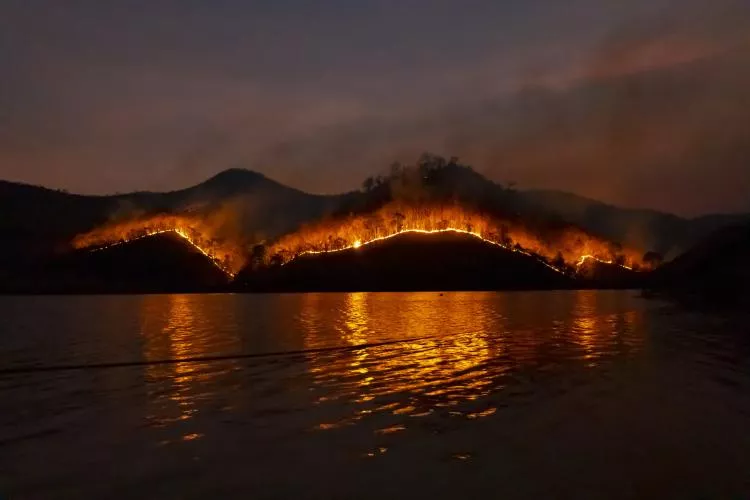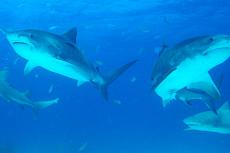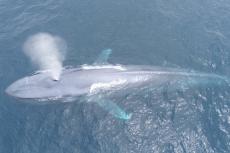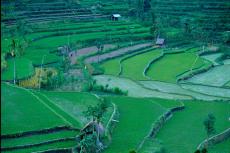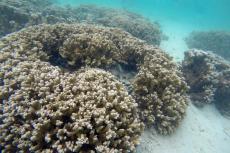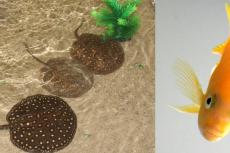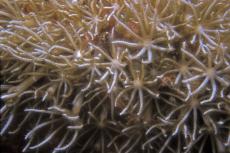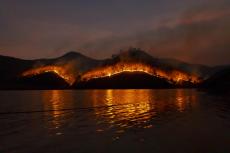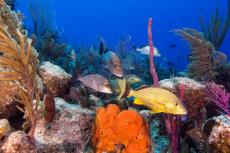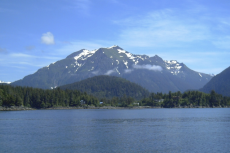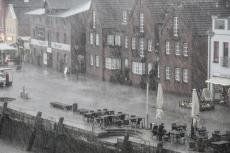Wildfires can affect aquatic ecosystems
In recent years, climate warming has exacerbated destructive wildfires worldwide, with projections indicating escalating environmental and economic damage in the future. While existing studies have primarily focused on the impacts of wildfires on land ecosystems, fresh research from the University of California San Diego and collaborating institutions reveals significant changes occurring in aquatic ecosystems due to wildfires.
Led by the laboratory of Professor Jonathan Shurin at the School of Biological Sciences, the research examines how aquatic systems respond to burnt plant matter, including its effects on food webs. Published in the journal Global Change Biology, two studies by the researchers highlight several key findings. They demonstrate that wildfires chemically alter plant debris, fundamentally shifting the role of aquatic ecosystems in the carbon cycle. Additionally, the research underscores the importance of these ecosystems as carbon sinks, storing carbon in their sediments.
Postdoctoral Scholar Chris Wall, the lead author of one of the studies, emphasized the broader impact of wildfires on water resources and ecosystem health. “The effects of wildfires are not limited to terrestrial systems,” he said. “When we think about wildfires increasing, especially in the West, it’s important to remember that burned materials flow directly into waterways that are vital for people and wildlife. We’re now recognizing that wildfires can greatly influence ecosystem health, with implications for water resources, like aquifers and recreational fishing.” The research, conducted primarily at UC San Diego, carries significant implications for regions like the Sierra Nevada mountains, where wildfires are prevalent.
Carbon storage capacity
The study challenges conventional wisdom regarding carbon dioxide emissions in aquatic systems. While lakes and ponds typically emit more carbon dioxide than they absorb, the research suggests that this balance can be altered by the influx of burnt materials from wildfires. Ponds receiving burnt materials showed reduced carbon dioxide emissions, indicating a shift towards greater carbon storage.
However, the study also reveals potential limits to this carbon storage capacity. As the quantity of burnt material increased, the ponds’ ability to store carbon diminished, with the most heavily impacted ponds exhibiting higher carbon dioxide emissions.
Insect breeding grounds
Moreover, the research highlights changes in the composition of aquatic communities in response to wildfires. Ponds with heavy loads of burnt material saw a transformation in their inhabitants, becoming breeding grounds for insects like mosquitoes, in contrast to the typical aquatic species found in unburned ponds.
The study, conducted over a 90-day period, employed various experiments to track the movement of nutrients through the ecosystem. By using nitrogen tracers, the researchers observed a reduction in the transfer of nutrients to higher organisms in response to burning.
Feedback loops
The research underscores the need for integrated models to forecast the impact of climate change on both terrestrial and aquatic ecosystems. By understanding the feedback loops between these systems, we can better comprehend the changes occurring in the global carbon cycle.
“We’ve seen the impact that these huge fires have had on watersheds, so we’re working in these natural systems to understand how different components of climate change are altering the ecosystems,” said Shurin, a faculty member in the Department of Ecology, Behavior and Evolution.


